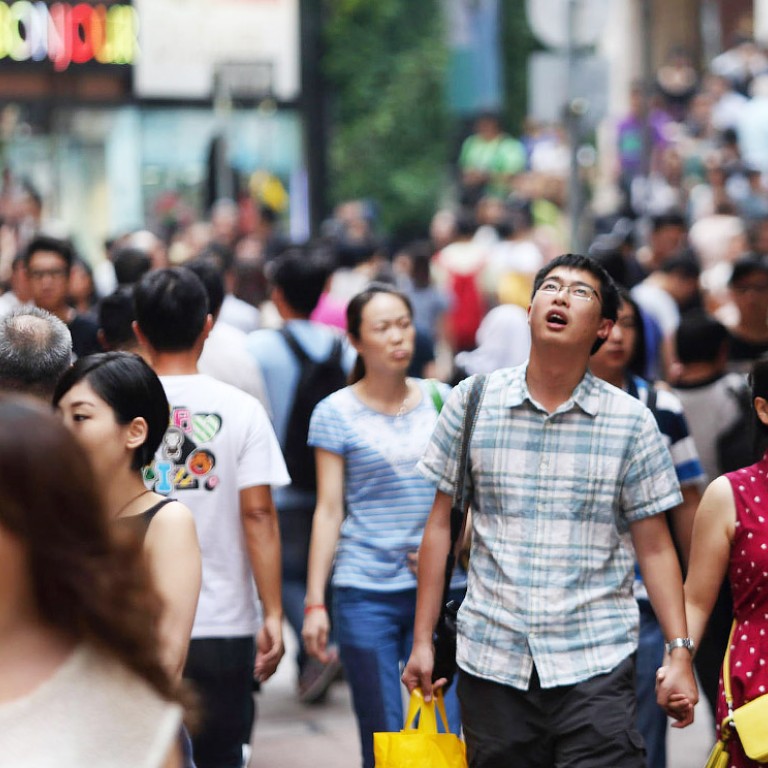
Retail sales crash 40pc over holiday period, says management group poll
Decline blamed on fewer mainland tourists and Occupy Central protests in key shopping districts, says management group survey
Retail sales in Hong Kong fell by up to 40 per cent during the National Day holidays - the first drop since the city opened its doors to individual mainland travellers in 2003.
Retailers reported a decline in sales of between 30 per cent and 40 per cent in the first five days following the National Day holiday on October 1.

Association chairwoman Caroline Mak Sui-king said yesterday the poll results of 30 retail chains and smaller outlets was a warning that the city may miss its estimated 3 per cent growth this year.
"I can't blame it solely on the Occupy Central movement," Mak said. "The desire to shop among locals has been OK because there has not been much negative news to put people off. The retail challenges are fewer mainland tourists with lower purchasing power."
Mainland visitors account for about 40 per cent of Hong Kong's retail sales, which, in turn, support the city's economy.
Events around last week's National Day holiday were unprecedented - protesters occupying the key shopping locations of Mong Kok, Causeway Bay, Central and Tsim Sha Tsui as they demonstrated for democracy in huge numbers.
The protests forced some retailers to close their doors temporarily. For example, jeweller Chow Tai Fook closed 22 of its stores - a quarter of all its outlets - on October 1.
According to the Immigration Department's latest statistics, the number of mainland visitors arriving in the city increased 1.5 per cent on average between October 1 and October 4.
Mak said sales fell in sectors such as fashion, watches and jewellery by about 30 per cent in the five-day period. Business was down at least 25 per cent at restaurants and fast-food outlets.
"We'll have to look at the figures for last month, the end of this month and early next month for a better idea of what the year will look like," she said.
Meanwhile, a report by the UK Foreign Office on the impact of the Occupy movement said that confidence in Hong Kong's economy was "holding up" and there were "few signs of capital flight". It continued: "Absent unexpected escalation, business consensus [is that the] protests will have few long-term economic effects."
The analysis document, released yesterday, said that "UK banks tell us it is 'more or less business as usual' … and only two UK bank branches closed on October 3".
Trading in retail stocks has been volatile in the past week. Cosmetics chain Sa Sa International - a favourite with mainland shoppers - saw shares drop to HK$5.14 last Friday from HK$5.32 on September 30, before closing at HK$5.31 yesterday.
While the fallout from the protests is being measured, one Causeway Bay business was not complaining. A shopkeeper at a pharmacy on Yee Wo Street said: "We were the only shop open during the first days of Occupy, so our business was better than usual," said the shopkeeper, who refused to be named.
"Selling bottles of water alone was enough to cover the rent."

